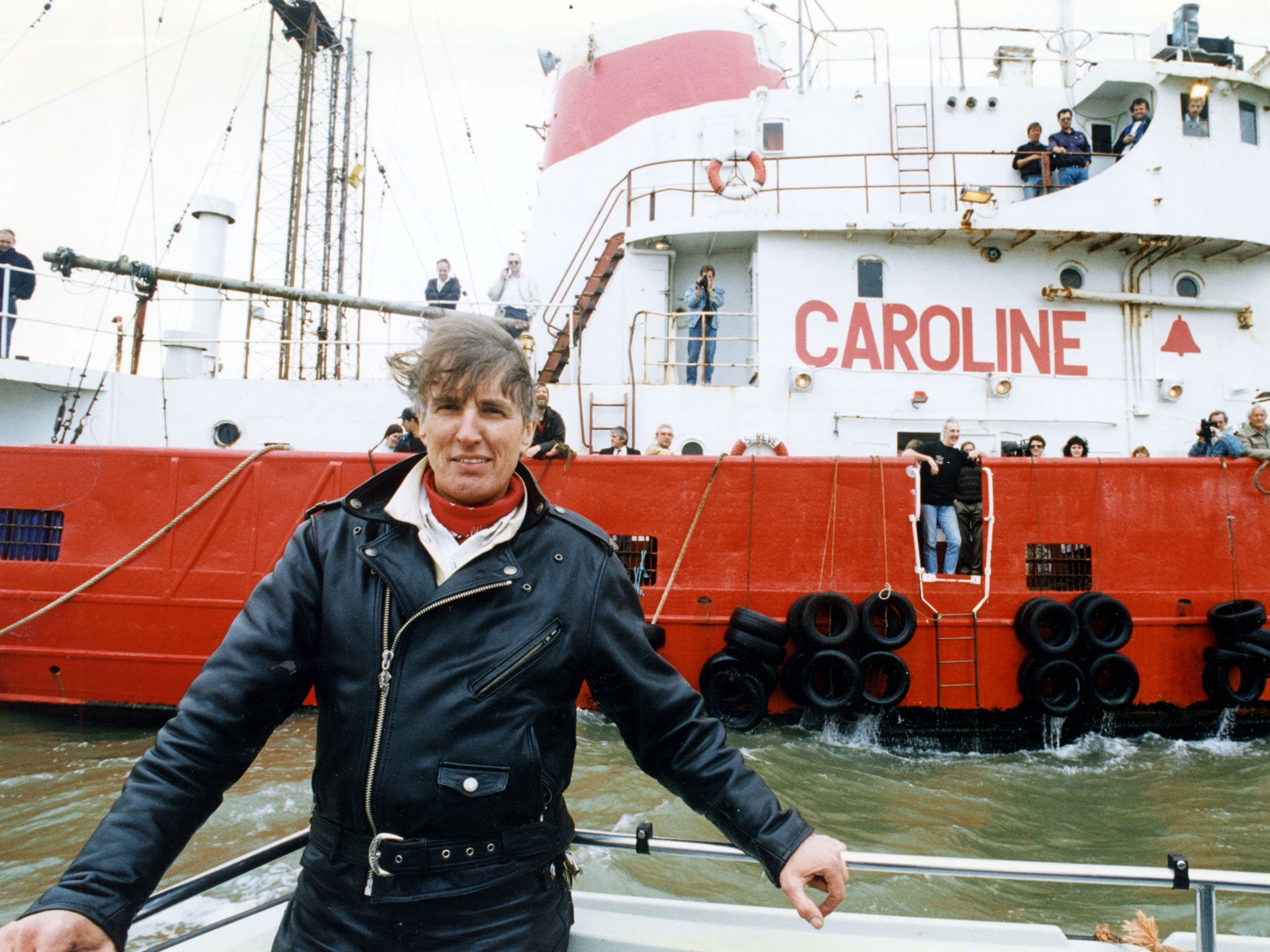Johnnie Walker confronts Tony Benn over rocking the boat: How DJ and former Postmaster General faced off over pirate radio, 50 years on
Mr Walker was interviewing Mr Benn as part of his month-long show at the Edinburgh Fringe Festival

As reconciliations go, it took its time in coming. For almost 50 years, Johnnie Walker and Tony Benn have represented two sides of a battle that defined British radio. One was a maverick DJ, playing records out of a rusting ship to circumvent a ban on broadcasting pop. The other was the Labour MP and then Postmaster-General, determined to close the loophole that allowed Radio Caroline to thrive.
Tonight, in a sometimes-tense meeting, the two opponents met face-to-face for the first time. Mr Walker was interviewing Mr Benn as part of his month-long show at the Edinburgh Fringe Festival. “Never did I think, all those years ago, when I was put out of work by a piece of Labour party law steered by this man, that I would interview him 47 years later,” Walker told a 150-strong audience at the New Town Theatre. “He turned me into a criminal. I’ve been looking forward to this.”
When Mr Benn appeared onstage, looking frail and unshaven, the two men shook hands. “It’s quite a privilege to have you on my show,” said Walker. Mr Benn was typically unapologetic. He even claimed that, had he not banned pirate radio, Radio 1 would never have been created, which “brings music to far more people”.
The battle of the airwaves began with the launch of Radio Caroline in March 1964. At that time, Britain was in the grips of a cultural revolution, as bands like the Beatles and Rolling Stones burst onto the scene with unprecedented energy. So terrified was the establishment that the BBC rationed pop music to a few hours per week on the Light Programme. When Ronan O’Rahilly, a young Irish pop manager, discovered that unlicensed ships were broadcasting rock music to audiences in the Netherlands, he did the same for Britain.
It lasted only three years. Tony Benn fought vigorously against it, but by the time he had managed to outlaw pirate radio in August 1967, the establishment had loosened its collar enough for the BBC to launch Radio 1 six weeks later. Pirate DJs like John Peel and Tony Blackburn were soon hired, but Johnnie Walker was not. He was determined to keep Caroline going, even if it meant breaking the law. He later learned that a memo was sent to the controller of Radio 1 1967 that said: “On no account should Johnnie Walker be employed for at least a year to let the taint of criminality subside.”
Mr Walker was still visibly angry tonight. “This was one of the greatest musical explosions in history, and the BBC decided to play only an hour on Saturday morning,” he said. “But teenagers were desperate to hear it, and, three and a half miles off the Essex coast, pirate radios were doing that. And people loved them. So, did you genuinely believe they were a bad thing, or were you doing the bidding of Harold Wilson?”
Mr Benn explained that musicians weren’t being paid for the music pirate radios were playing, and that foreign governments were complaining that they were stealing their radio lengths. “They threatened to do the same to our own stations, like Radio 4. I had to protect us from foreign countries that were threatening to broadcast on our airwaves. And I happened to be in the hot seat at the time.”
Walker did later join Radio 1, in 1969, but would then fall out with them over his choice of music. Benn was given the now defunct post of Postmaster-General in Harold Wilson’s weak 1964 government. He oversaw the opening of London’s telephone tower, then London’s tallest building, and proposed axing the Queen’s head from stamps. While that campaign failed, he won his crusade against pirate radio, despite having worked as a BBC radio producer before becoming an MP.
The wide-ranging interview covered everything from trade unions and the Iraq war to Benn’s new beard, which Walker described as “trendy”. “I’m too lazy to shave,” Benn explained. “I hope it hasn’t given offence.”
Subscribe to Independent Premium to bookmark this article
Want to bookmark your favourite articles and stories to read or reference later? Start your Independent Premium subscription today.

Join our commenting forum
Join thought-provoking conversations, follow other Independent readers and see their replies